Sir Isaac Newton isn’t usually the first thing that comes to my mind when I think about Christmas.
From The Daily Phoenix, Columbia, South Carolina, December 25, 1872:
Christmas.
The learned have long been divided in opinion as to the precise day of the nativity of the Saviour. But from the earliest ages of the church, the 25th of December has been fixed upon. Sir Isaac Newton, in his commentary on the prophecies of Daniel, accounts for the choice of this day, the winter solstice, by showing that not only the Feast of the Nativity, but others, were originally fixed at cardinal points of the year; and that the first Christian calendars having been so arranged by mathematicians, at pleasure, without any ground in tradition, the Christians afterwards adopted what they thus found in the calendars. They were content so long as a fixed time of commemoration was solemnly appointed.
When the world was younger, a warmer, or at any rate, a more boisterous hospitality, marked the recurrence of the day of the Nativity, than is usual now. Most of the old customs, such as the wassail-bowl, the yule-clog and the lord of misrule, with attendant sports and frolics, are now discontinued, and almost forgotten. Those pious songs, the Christmas carols, of which, according to Bishop Taylor, the earliest was the “Gloria in Excelsis,” the hymn sung by the angels to the shepherds at our Lord’s Nativity, are now almost out of vogue. They were originally festal chansons for enlivening the merriments of the Christmas celebrity. They were considered indispensable to the escort of the soused boar’s head, which was the first dish borne up to the principal table in the great hall. After undergoing many changes, and becoming, for a time, austere, under Puritan rule and influence, we have known them in our day, principally through the entertaining stories, appropriate to Christmas times, of the late Charles Dickens.
These old customs have passed away, but the old feeling of relaxation from care at this season survives them. Anxieties are dismissed for a time, as all feel that
“Christmas comes but once a year,
And, when it comes, it brings good cheer.”
While, then, they give way to their social feelings, and celebrate the day in becoming style, with roast turkey on their tables, and bowls of egg-nog in the hall, they should not forget the claims of those who are in less favorable circumstances, to whom Christmas is made sad by their exclusion from its festivities. Gaunt hunger is at many a threshold in our city today, and the tattered garments and open hovels of the destitute are but a poor protection against the inclement season. They need food, fuel, clothing, and other comforts, and it becomes those whose means enable them to minister to such pressing wants, not to withhold the helping hand. Whoever is happy himself should wish to make others happy. We cannot help thinking that those who mingle a judicious, hearty and unobtrusive charity with their Christmas enjoyments, will find them better sweetened and more highly flavored to their taste. In the wish that all, the poor and sad, as well as the rich and cheerful, may have unalloyed happiness in their hearts, homes and associations, we wish them a merry Christmas, and many returns of it, brightening each time with higher enjoyments, purer hopes and tenderer charities.
After a couple short articles, the Daily Phoenix next editorialized about General William T. Sherman’s testimony regarding the burning of Columbia on February 17, 1865.
The Burning of Columbia.
Most of our city readers have not yet been able to recover from the horrors of that dreadful night when Columbia was burnt by the Federal army.They can never forget the atrocities and cruelties which accompanied the vandal act. The city was formally surrendered by the Mayor and Aldermen about 12 or 1 o’clock in the day, and taken regularly under the protection of the Federal commander. He told the mayor and friends who were with him that they need be under no apprehension, and that they and all the citizens might sleep in peace. Gen. Sherman himself, we suppose, slept soundly while the 15th Army Corps “did their work well,” as it seems he knew they would do it. Such was the indignation which this atrocious abuse of the rights of war, the betrayal of pledges, and needless, heartless cruelty caused throughout the civilized world, that it was meanly attempted, by certain writers of fiction, called historians, and by subsidized Congressmen, to saddle the crime upon Gen. Hampton. Nobody believed this but those brutal and vulgar wretches who prefer a lie to the truth always. Now, curiously enough, we have Gen. Sherman himself on the stand, giving his testimony before the American and British Claims Commission in regard to the burning of Columbia. He did not issue orders to do it. Of course not. There was a better way. He had but to let the exasperated army alone, and they would know what to do. They knew that he, too, was exasperated, and divined his feelings only too well. When Sherman was on his way to Columbia, Halleck wrote to him to destroy Charleston and sow it with salt, so that no more nullification and secession should ever grow there again. To this, Sherman, in reply, wrote that Charleston and Columbia would soon be in his hands, and Halleck would have no cause to complain of his treatment of them; that he had the Fifteenth Corps with him, and that corps did their work well; and further, that he (Sherman) would not spare the public buildings at Columbia as he had at Milledgeville. Gen. Sherman admitted, on his examination, that this correspondence was authentic. He stated that he occupied Columbia with the Fifteenth Corps. In reply to the question whether he kept the men in ranks after taking possession of the city, he said “No.”
We grieve for the sin that lies upon the souls of all the lying chroniclers, confessmen [sic, congressmen?] and newspaper writers, in connection with this much mooted affair. All the falsehoods are without avail, for here is the chief actor himself making a a [sic] clean breast of the thing. Bad enough it is to lie, but to do so for a chief who pleads guilty of the charge which they stoutly deny – this must indeed be excruciating to their feelings.
Apparently employees of The Daily Phoenix had a relaxing Christmas. The Library of Congress doesn’t have a copy of the paper for the 26th, presumably because no one was working on the 25th. According to the December 27th edition, the staff provided sort of a surprise party to go, but page 2 began with an article about the only vice-president of the Confederate States of America. Alexander H. Stephens gave a rather hopeful speech in Atlanta. The Phoenix thought it was easier to be hopeful in prosperous Georgia than in hellish South Carolina.
From the December 27, 1872 issue of The Daily Phoenix, Columbia, South Carolina:
Speech of Hon. Alexander H. Stephens – Hopeful Views.
Hon. A.H. Stephens, of Georgia, has long been conspicuous for his talents and eloquence, his services and patriotism. He is a great favorite in our sister State, and faithfully returns the fondness the people feel for him. These relations of confidence and regard have marked those intervals in his life when he has not filled office, as well as the periods when he has been a chosen representative of the State. The people of Georgia early discovered his merits, and confidingly bestowed upon him their highest honors. The personal esteem felt for him is even greater than the political favor which has so often been shown him. The confidence in his integrity, capacity and experience, enforced and supplemented by personal regard, extends beyond the bounds of his State, as was signally shown when he was elected Vice-President of the Southern Confederacy, although it was well known that he did not originally favor secession as a remedy. Theoretically he did not approve of that step, but once it was taken and identified with the cause of the South, his heart yearned for its success, freighted, as it was, with many precious hopes. He regarded the success of the Southern movement as the best guarantee of the liberties of the continent. In his judgment the Southern cause included and involved the maintenance of local self-government and the principles of the rights of the States, upon which the fabric of American free institutions rested.
Since the close of the war, Mr. Stephens has lived in retirement, but not in inactivity. The victim of weak health and chronic disorders of body, his mind is ever active and his studies incessant. The old cause of constitutional, well regulated liberty is ever present to his thoughts, and he is a most attentive observer of passing events. He has employed his pen recently with fine effect in presenting and describing the true issues of the war, and in the preparation of valuable literary and historical works. For a year past he has been the political editor of the Atlanta Sun, and took ground in the late canvass against the support of Horace Greeley as the compromise candidate between the North and South. In this he differed from the larger portion of the people of the South and of Georgia, but it was an honest difference, and rested, on both sides, on sincere convictions. In this State, all except some of the new population and the colored people, very cordially accepted Mr. Greeley, as both honest and capable, and embodying and entertaining the true spirit of conciliation. Perhaps our condition somewhat influenced our views. We naturally crave to be delivered from the body of death to which we are tied. We catch at every straw, we strain our eyes toward every prospect of deliverance from a set of thieves who are stealing our substance, and from the load of ignorance which is fast crushing the life out of us. For his own high merits, for the good that he promised us, and which we hoped his election would bring to us and the whole country, we warmly supported Mr. Greeley’s claims to the Presidency, but Mr. Stephens thought differently and stood aloof.
Upon the invitation of his friends in Atlanta, Mr. Stephens, a few days ago, delivered a conversational address in that city, upon the issues of the day and his personal relations to them. Having elucidated these elaborately and satisfactorily, he presented some of the grounds upon which he bases his hopes for a better prospect in future. They show the buoyancy and elasticity of his nature, and perhaps the prescience of his mind. We confess that we cannot see as bright a light or as fine a prospect before the country as Mr. Stephens does; but he is in prosperous Georgia, where the people govern themselves, and we are in downtrodden South Carolina, where the public debt has been trebled in four years; where our annual current State expenses have been increased more than sevenfold; where taxes have nearly reached the point of confiscation; where the Treasury is empty; where all public institutions have gone to decay, and the high prizes of talent and public service are sold like any other commodity in market, at the highest price. Around and all along the borders of this State might be appropriately placed the inscription which Dante saw over the gate of hell:
“Per me si va nella citta dolente;
Per me si va ne l’etterno dolore;
Per me si va tra in perduta gente;
Lasciate ogni speianza, voi ch’entrate.”
[Through me is the way into the doleful city;
Through me the way into tho eternal pain;
Through me the way among the people lost;
Leave all hope, ye that enter.]
We have read Mr. Stephens’ speech with interest and pleasure. In another place, we extract the concluding part, in which the duty and mission of the Democratic party are admirably delineated, and a hopeful view taken of the future of the whole country.
Supri-sing.
We have heard of surprise parties, and on Christmas day experienced one of the pleasantest that can be imagined. It was a little past high noon, when we heard a thundering noise on the staircase and much stamping of shoes to get off the snow. We thought some of our numerous boys with their friends had been out gunning, and on their return, were coming in to warm by the fire. The door opened, and in they came. The PHŒNIX father, ever rising from his ashes and always in a flame, but not burnt up, as far as we can see; the PHŒNIX foreman, with his conundrums and quips and cranks and wreathed smiles; the PHŒNIX compositors, who, like Franklin and Horace Greeley, read and understand newspapers they print; the PHŒNIX pressman, who lives below, and is sometimes sooty from much dealing with steam, but keeps a cheerful heart within him all the lime; the clerks of the PHŒNIX, those ready pensmen who know how to indite a billet doux or frame an artistic debtor’s bill, and dun for it in the coolest fashion; the whole fraternity of Faustus, including the old boy himself, who, by some strange paradox, is represented in a printing office by the youngest and smallest boy; together with other clever representatives of the art preservative of other arts, not forgetting polite colored attendant Jim, man of horses and skillful in cork-drawing – well, all of these, and we don’t know how many more, came down on us with their bottles of punch and old usquebaugh, their cakes and fancy things, their new-fashioned inkstands, gold pen and what not. We surrendered at discretion, said our little speech, toasts and sentiments wont round, and all went smoothly as Calnan’s new sled gliding over the snow. We were considerably scared, but are now recovering, and hope to be all right on New Year’s Day. We defy them to scare us again. Just let them try it.
Up north a New York City magazine published some Christmas-related pictures. From the December 28, 1872 and January 4, 1873 issues of Harper’s Weekly:

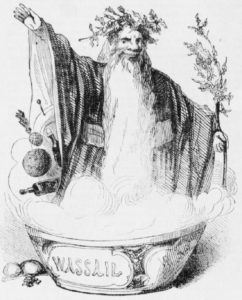
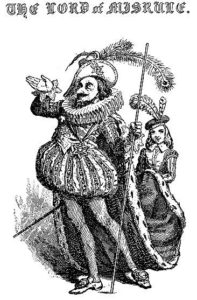
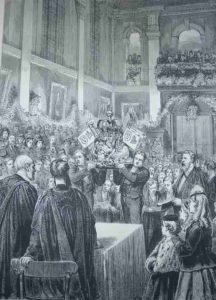
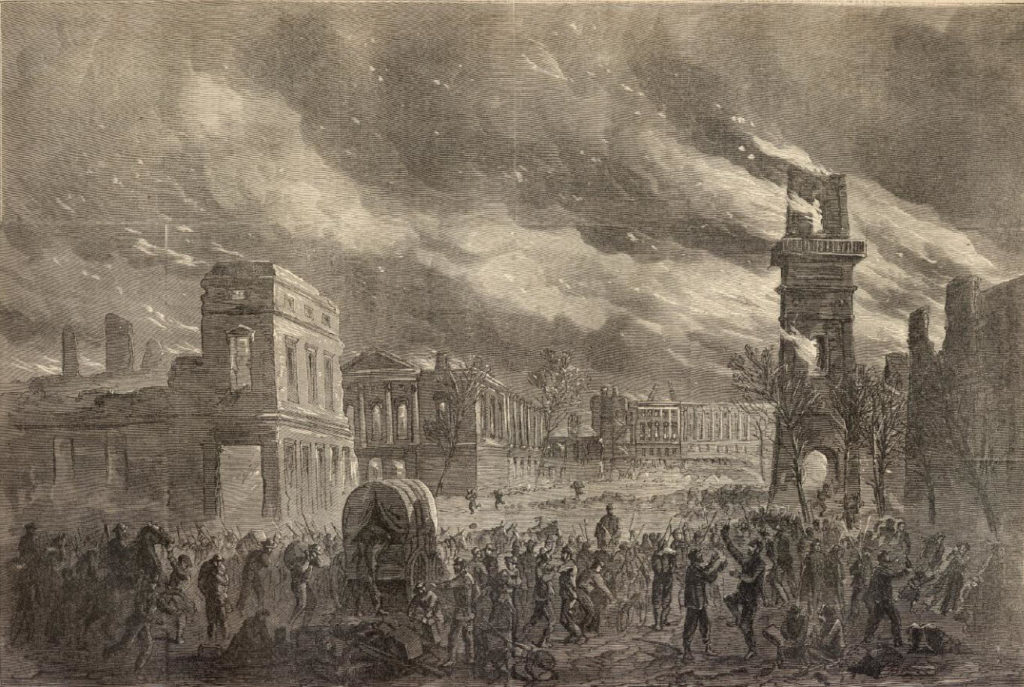
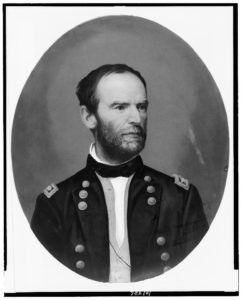
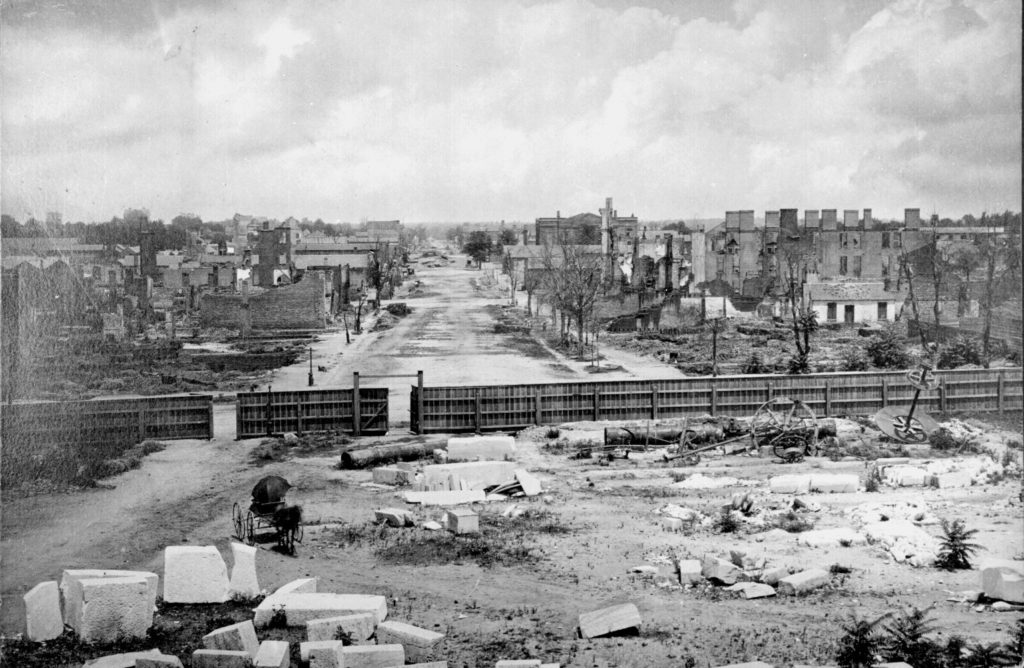
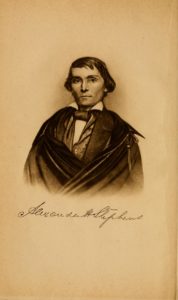
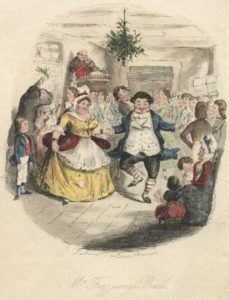
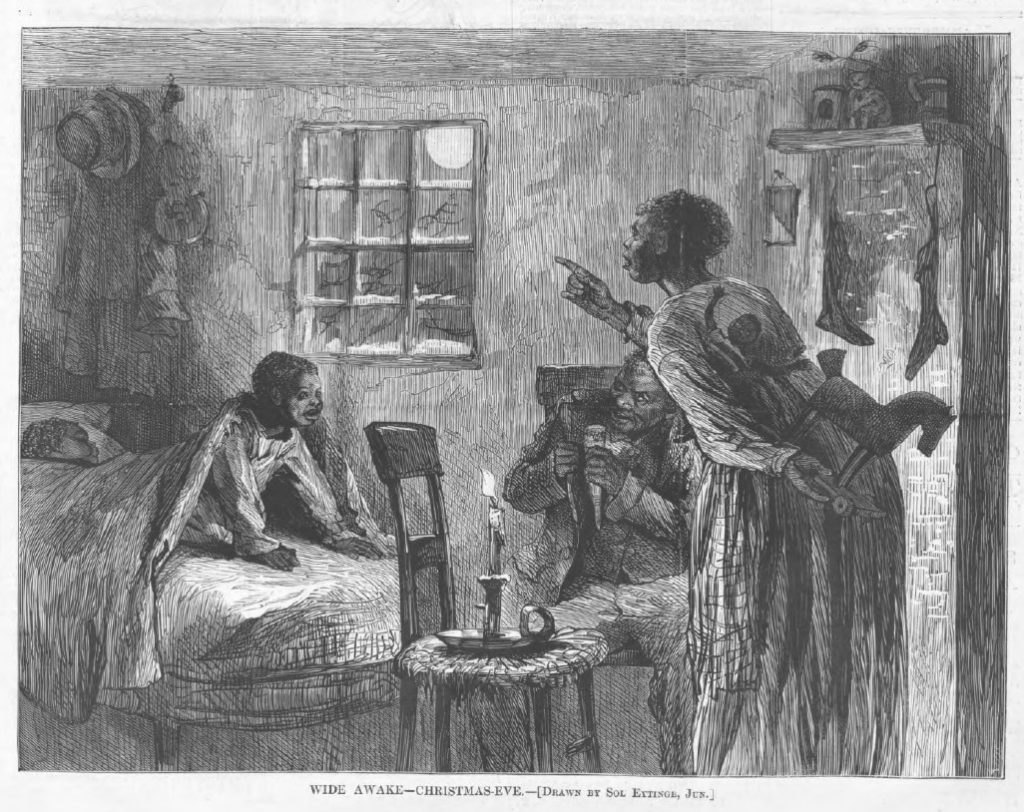
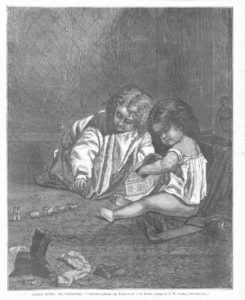
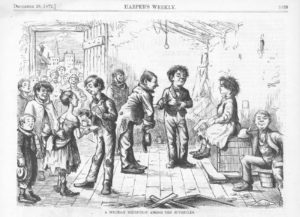
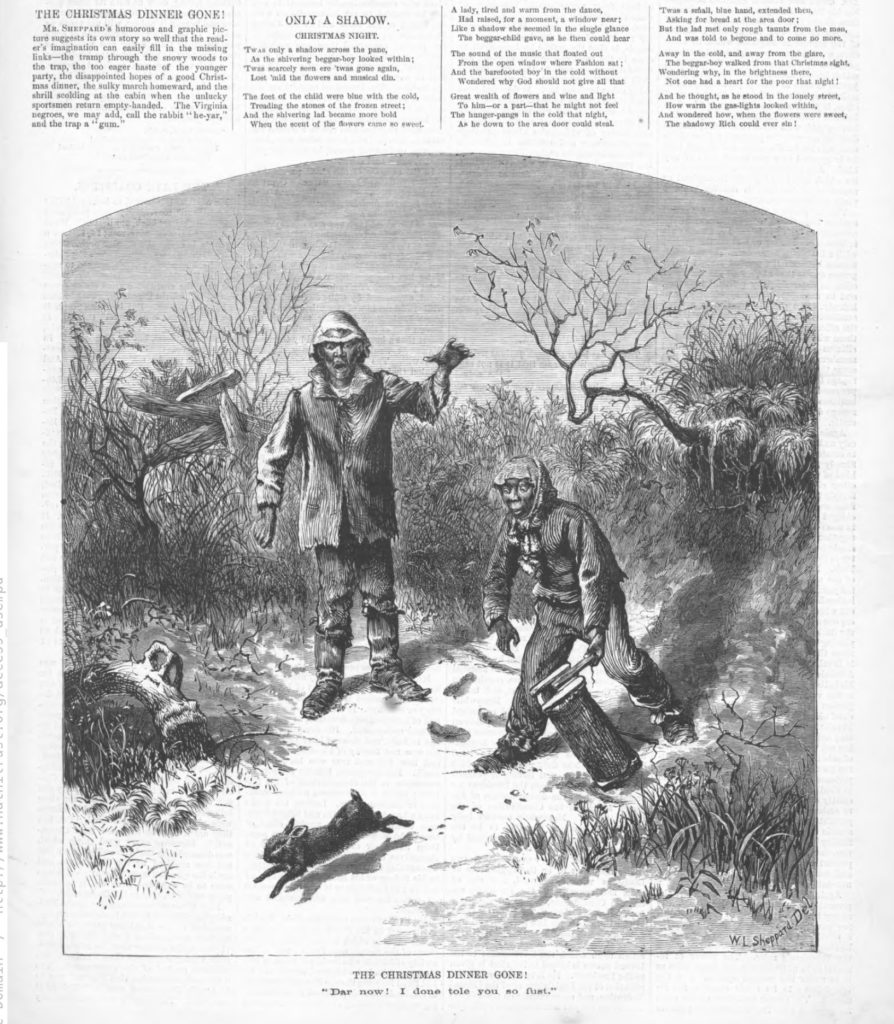
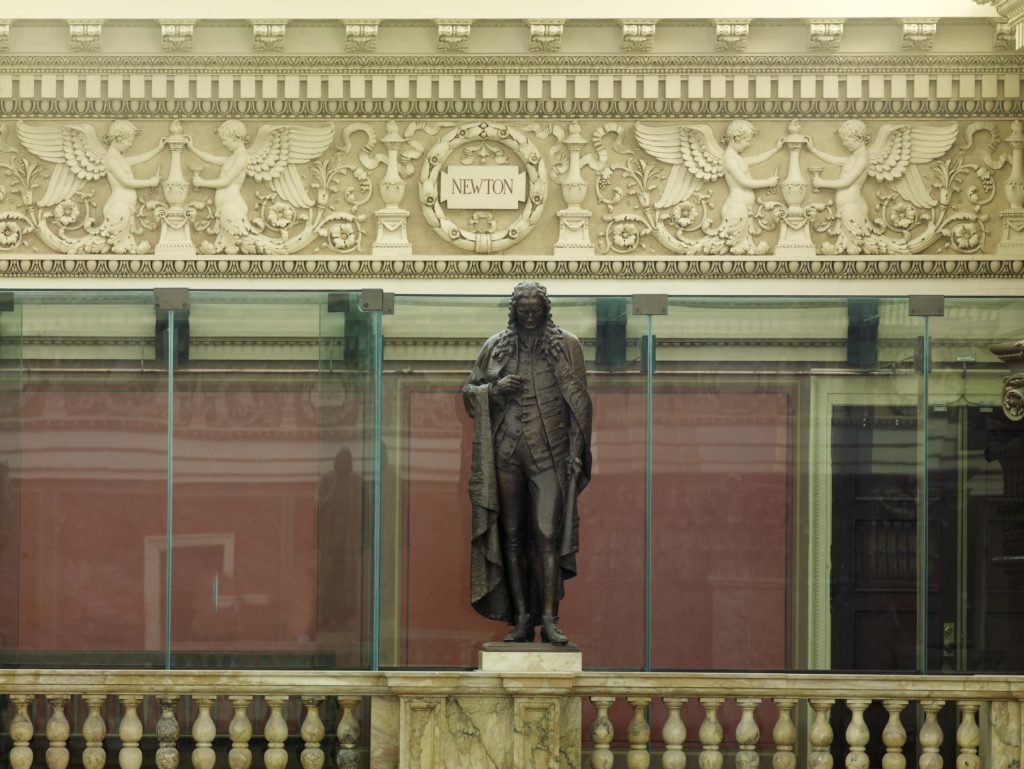
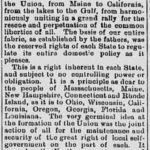
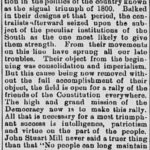
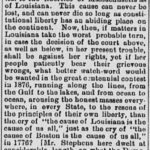
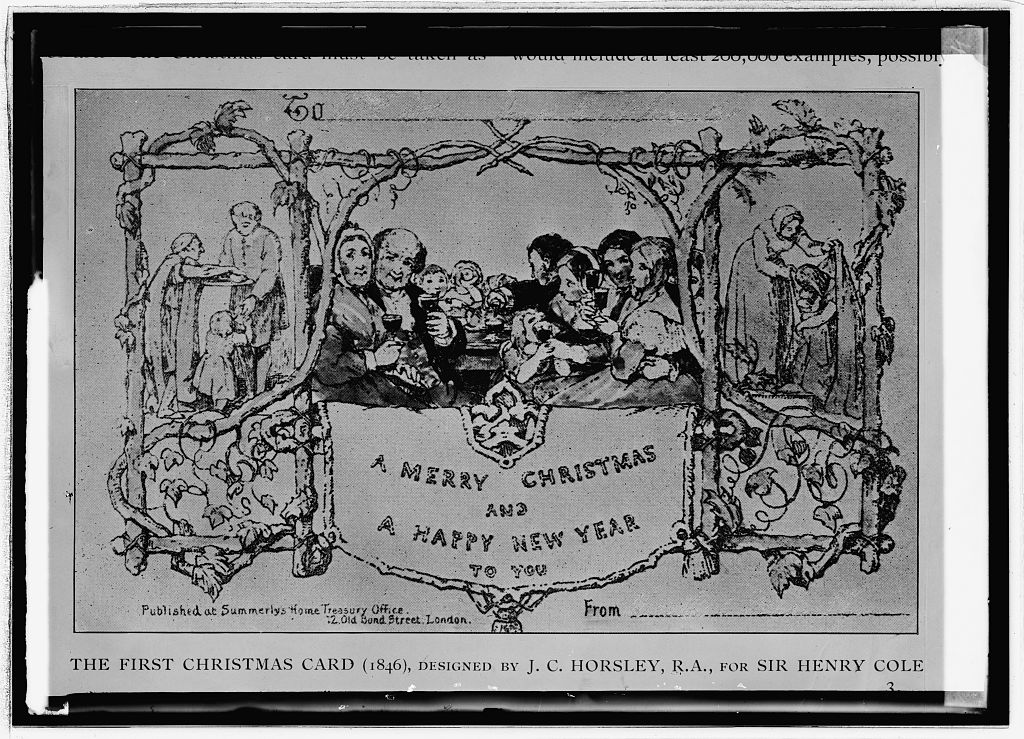
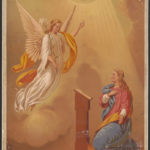
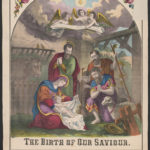
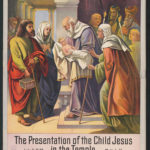
![Merry Christmas (New York : Published by Currier & Ives, 125 Nassau St., [1876])](https://www.bluegrayreview.com/wp-content/uploads/2017/12/09454v-1024x812.jpg)